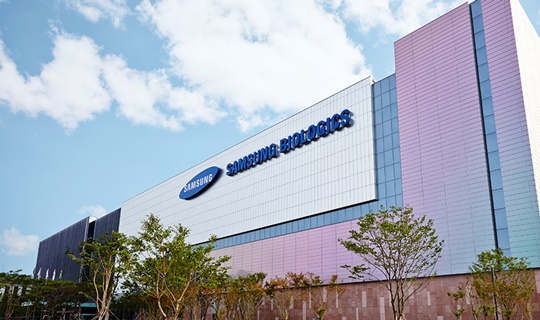Top-10 pharmaceutical news in 2019 ⑤
Samsung BioLogics and Samsung Bioepis were not free from suspicion and controversy this year, too.
While the suspicion was focused on Samsung BioLogics’ alleged accounting fraud last year, the company this year was subjected to an investigation from the prosecution on suspicion of destroying evidence derived from the allegation.

After all, all Samsung employees who were arrested on suspicion of evidence destruction were convicted at court.
Investigations began in December last year when prosecutors seized and searched Samsung BioLogics and Samsung Bioepis on allegations related to its accounting fraud.
Earlier this year, the prosecution focused its attention on the alleged destruction of evidence, as they managed to secure evidence regarding the company's removal of forged accounting data.
According to the prosecution's findings, the act of destroying evidence was organized for several months after the top managers of Samsung decided to delete all relevant data in preparation for the prosecution’s investigation in an emergency meeting on May 5. 2018.
Following the instructions from the meeting, the financial teams of Samsung BioLogics and Samsung Bioepis and other related employees removed all data on the computer related to keywords such as “call options,” “JY,” “listing,” and “merger.”
The companies replaced the key employees’ mobile phones, and deleted the log records on the main server as well as the log information, not to leave any traces behind.
Later, Samsung BioLogics hid 24 employees' computers on the floor of its third factory’s conference room and three primary and backup servers on the first floor of the first factory’s communication room. These floor beds could be lifted only by using an absorber, which made the hiding unnoticeable. Samsung Bioepis also hid a NAS server with backup data at a warehouse next to the employee's residence.
The destruction of evidence was later caught while the prosecution was investigating a new employee's computer that had nothing to do with the finance team. As the prosecution detected the situation, their probes accelerated as the employees who had initially denied the allegations started to tell the truth.
After two more raids, the prosecution could secure all concealed servers and confirmed that the act of destroying evidence was done under the direction of Samsung Group executives. Based on such facts, eight people were arrested -- three vice presidents of Samsung Electronics, two executives and two employees from Samsung Bioepis, two Samsung Bioepis employees, and one Samsung BioLogics employee.
During the trial, the defendant admitted that the data was deleted and that it was wrong but insisted that their actions should be reexamined whether or not they constituted the destruction of evidence.
They also argued that the case on the merits -- whether Samsung Bio's suspicion of fraudulent accounting was guilty or not -- should be considered.
However, the court accepted the prosecution's claims that their actions were equivalent to the destruction of evidence and convicted all eight officials. Three of the vice presidents were sentenced to jail terms while the remaining five received suspended jail sentences.
In meting out the ruling, the court also criticized Samsung for its behavior.
“Korean people expect Samsung to be the world’s best company, but if its growth were based on unlawfulness, it would not be applauded, the court said. “If you had listened to employees who said an ordinary multinational company would not have destroyed the evidence during trials, this kind of criminal act would not have occurred.”
However, the court made it clear the sentence had nothing to do with the alleged accounting fraud at Samsung BioLogics.

